Expert discussion: The challenges in mental health research
02/10/2024
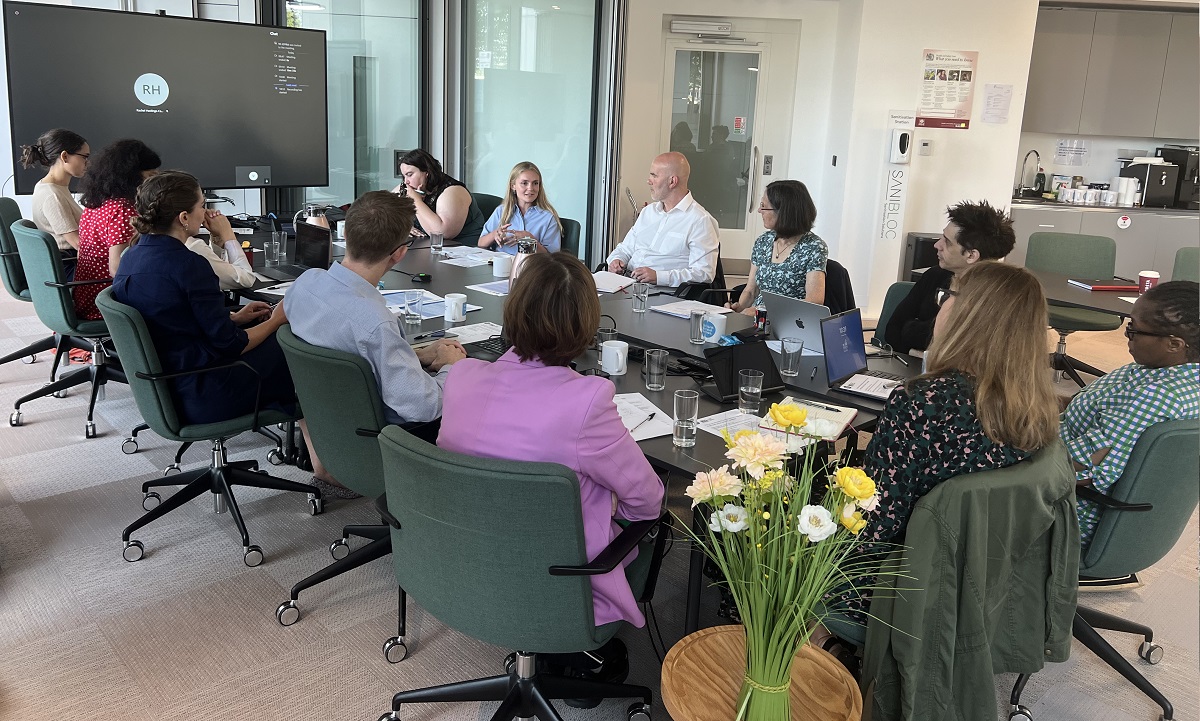
This blog has been jointly written by Rethink Mental Illness and MQ Mental Health Research.
Rethink Mental Illness and MQ Mental Health Research recently held a roundtable discussion with leading voices in the mental health sector, representing both expertise by training and lived experience of mental illness.
The group discussed the barriers that are preventing progress in conducting clinical research into the development of treatments and interventions for different mental illnesses as well as their solutions.
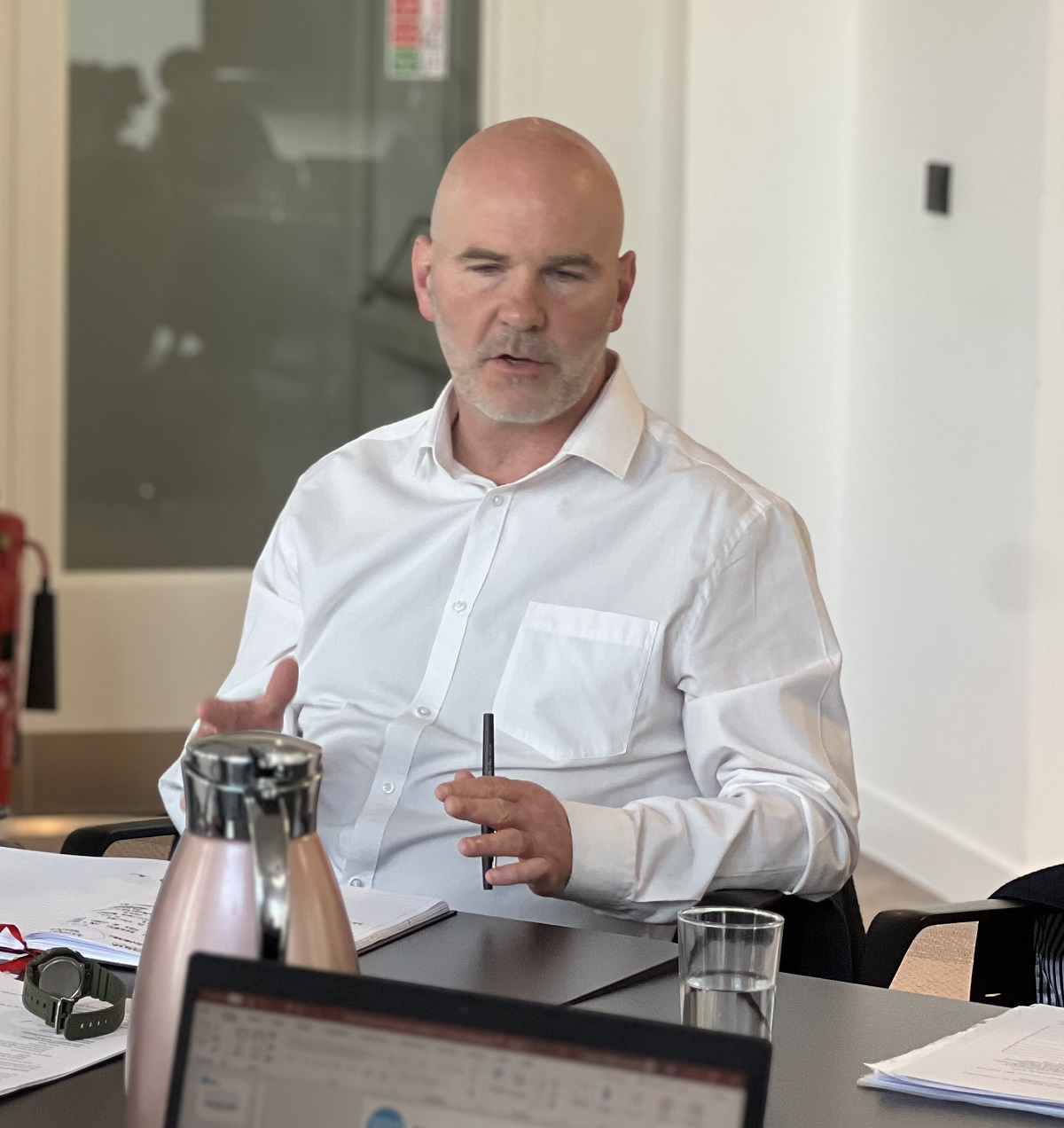
-
We were delighted to work with MQ Mental Health Research to bring together a fantastic group representing a spectrum of expertise and a strong commitment to breaking down barriers to effective mental health research. To fully shatter these barriers, we need more collaboration across the sectors and crucially to ensure people with lived experience of mental illness are meaningfully involved in research throughout the life course. We look forward to advancing both the actions identified through the roundtable and the powerful messages of hope about the future of mental health research.
Brian Dow, Deputy Chief Executive, Rethink Mental Illness Brian Dow, Deputy Chief Executive, Rethink Mental Illness
Here are some of the key takeaways from the meeting:
1. Structural discrimination is preventing mental health research from receiving proper investment
Dr Lade Smith CBE, President of the Royal College of Psychiatrists, explained that people who have a mental illness are often stigmatised and consequently many of their needs are not addressed or even considered. This structural discrimination particularly affects those with severe mental illness and is built into the fabric of our society. There is very little understanding of these conditions and the fact that people can lead healthy, fulfilling lives if they are effectively treated and managed.
It is the most marginalised groups in society who are most impacted by mental illnesses. People with low socio-economic status, unsafe living conditions and those who suffer discrimination, including people from racialised minority communities, all carry a higher burden of disease whilst simultaneously being the cohorts least likely to access effective help. Sadly, this discrepancy is also true when it comes to research priorities. Too little funding is directed towards mental health research from the Government, private sector and even the charity sector.
Too many people still believe that no progress is possible, and that research will not achieve anything when it comes to improving mental health outcomes for patients. The perception from those with money to invest that ‘there is no such thing as a vaccine for mental illness’ means there is reduced motivation to invest.
The reality is that the opposite is true. MQ’s own research has already transformed the way interventions are delivered for depression worldwide, found ways to reduce the risk of children developing psychosis in later life, and improved our understanding of the biological mechanisms of different mental illnesses.
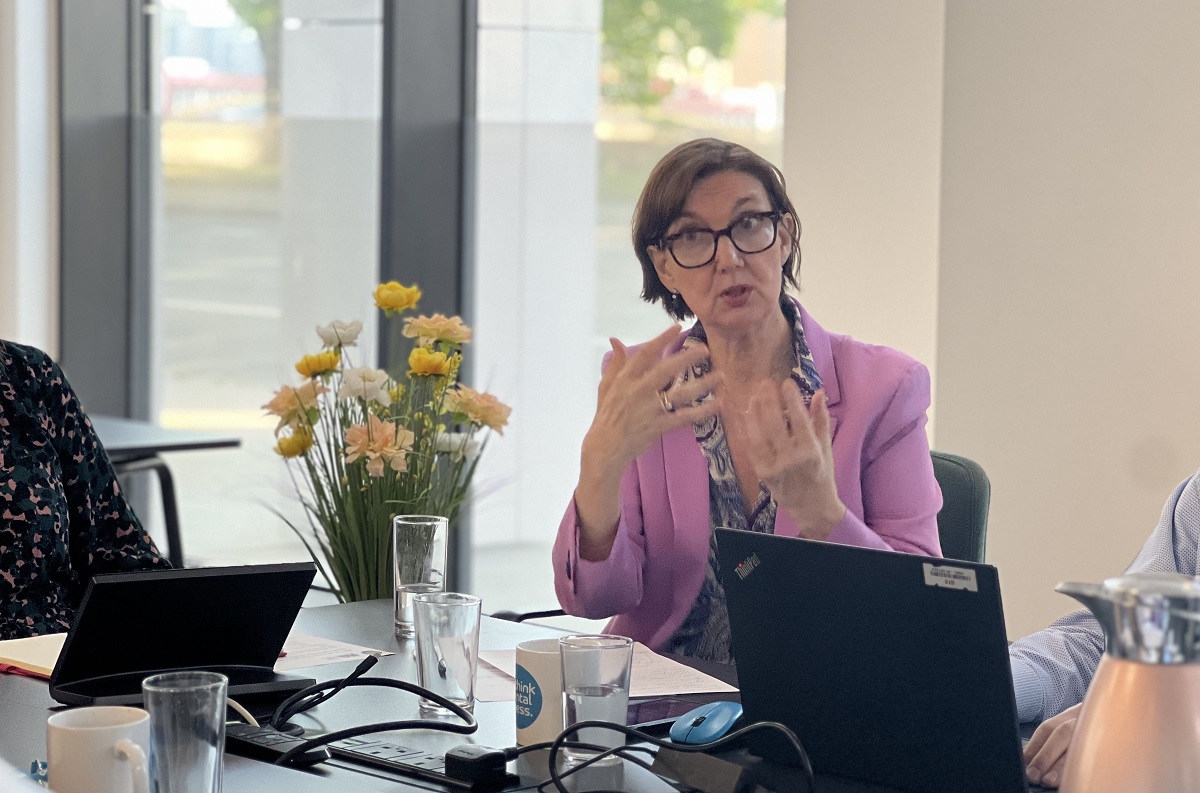
-
If we [as a sector] can share the positive achievements made through research then this will help people understand the potential for investment and impact.
Professor Miranda Wolpert MBE, Chair of Mental Health at Wellcome Professor Miranda Wolpert MBE, Chair of Mental Health at Wellcome
Another way in which mental health research is under-invested in compared to physical health research is the perceived lack of urgency. In 2017 MQ conducted a funding landscape report to see what the discrepancy was between funding for research into physical and mental health conditions. It was found that for every person impacted by mental illness, just £9 is invested in research. In comparison, £228 is spent per person impacted by cancer.
Since this landscaping report many organisations such as MQ, Wellcome, UK Research and Innovation (UKRI) and the National Institute for Health and Care Research (NIHR) have been working to close this gap. But we have a long way to go.
This is despite the clear and growing burden of disease that mental illness presents. 1 in 4 people are impacted by mental illness and the estimated economic cost to England alone is over £300 billion.
2. More needs to be done to co-produce research with the people most impacted
Including Experts by Experience in the whole lifecycle of studies is vitally important if the research sector is to address the issues that will have the widest impact. Too often questions are asked by scientists and funders because it is what interests them, not what interests the people impacted.
Rethink Mental Illness has long championed the value of including lived expertise in shared considerations and decisions, delivering many coproduction projects with a range of stakeholders and producing their own Model of Coproduction based on their practice. Their experience has shown that enabling Experts by Experience and their wider networks to shape the design and delivery of services is key to identifying key barriers and solutions to these barriers.
But there are barriers to involving and recruiting people with lived experience of mental illness into research. Many people living with severe conditions such as depressive disorders, anxiety disorders, personality disorders or psychosis face systemic barriers that prevent them from dedicating time and effort to shaping research.
Many people who do not have qualifications in psychology or other science subjects may not feel they have anything to contribute to the formation of a study or feel that their input would not be considered valuable.
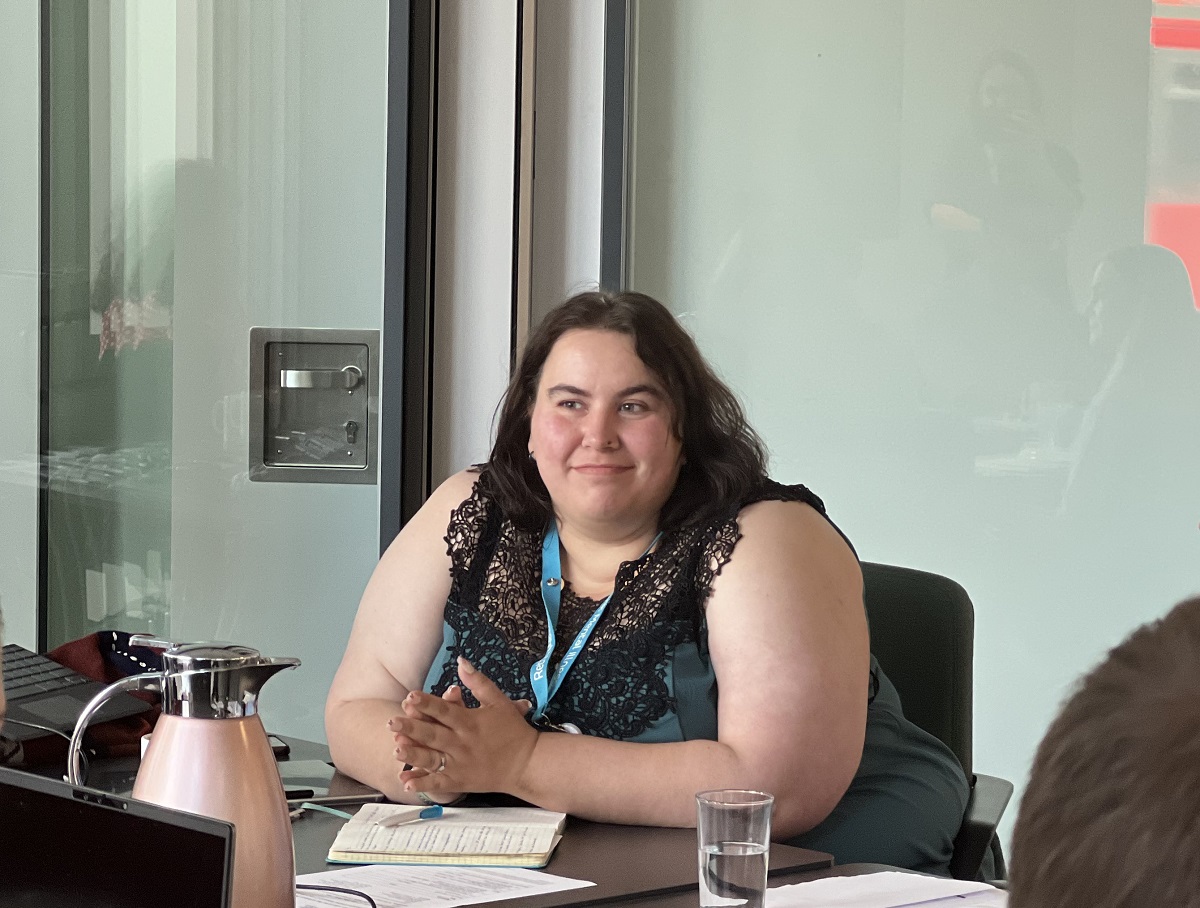
-
In my experience if you have been involved in research [as an expert by experience] then you often get asked again and it always seems to be the same people doing it.
Aphra Tulip-Briggs, Trustee at Rethink Mental Illness Aphra Tulip-Briggs, Trustee at Rethink Mental Illness
More needs to be done by research organisations to include people with lived experience at every stage of a research programme. From setting the priorities to disseminating the findings.
It’s important that this is made possible and that that funders facilitate the involvement of a wide range of people with diverse experiences. Funders can make clear their expectations for coproduction in including the involvement of experts by experience from new sources such as places of worship, job centres and GP surgeries.
“One of the things we see from working with lived experience researchers and members of lived experience advisory panels are the in-work benefits for the individual themselves – learning new skills, sharing their wisdom and expertise with others – often impacting their own life and mental health journey in positive ways” says Vanessa Pinfold, CEO of the McPin Foundation. “We also need to encourage more people into our mental health research workforce. We could be engaging some of the young people who are working on social issues such as knife crime and encouraging them into research careers.”
3. Data is not the ‘new oil’
Richard Gardner, Government Affairs and Policy Manager for Johnson & Johnson Innovative Medicine, explained that one of the big challenges they have, as a global organisation conducting and funding commercial clinical research, is extracting usable data to inform clinical trial design and outcomes from healthcare systems such as the NHS.
People are rightly protective of their personal data and GPs are often the gatekeepers for accessing anonymised health records.
One reason for this is that many people feel their health data can not only make them vulnerable to discrimination, but that it is inherently valuable, and they do not want to see private investors profit from it.
The 2022 MindKind study found that young people are generally happy to have their data used to help others through research, but are fundamentally suspicious about sharing this data with governments or with private organisations, even if the data is anonymised.
Clearly more education is needed to reassure people that anonymised data cannot be used to discriminate against individuals, and that it can be truly valuable in research. This should be done in conjunction with safeguards to ensure data collection and storage is done safely.
Another barrier to utilising health data is that often data is collected and stored by public sector bodies such as the NHS, schools or local authorities. This is often held in unusable formats and it requires private companies to step in to collate.
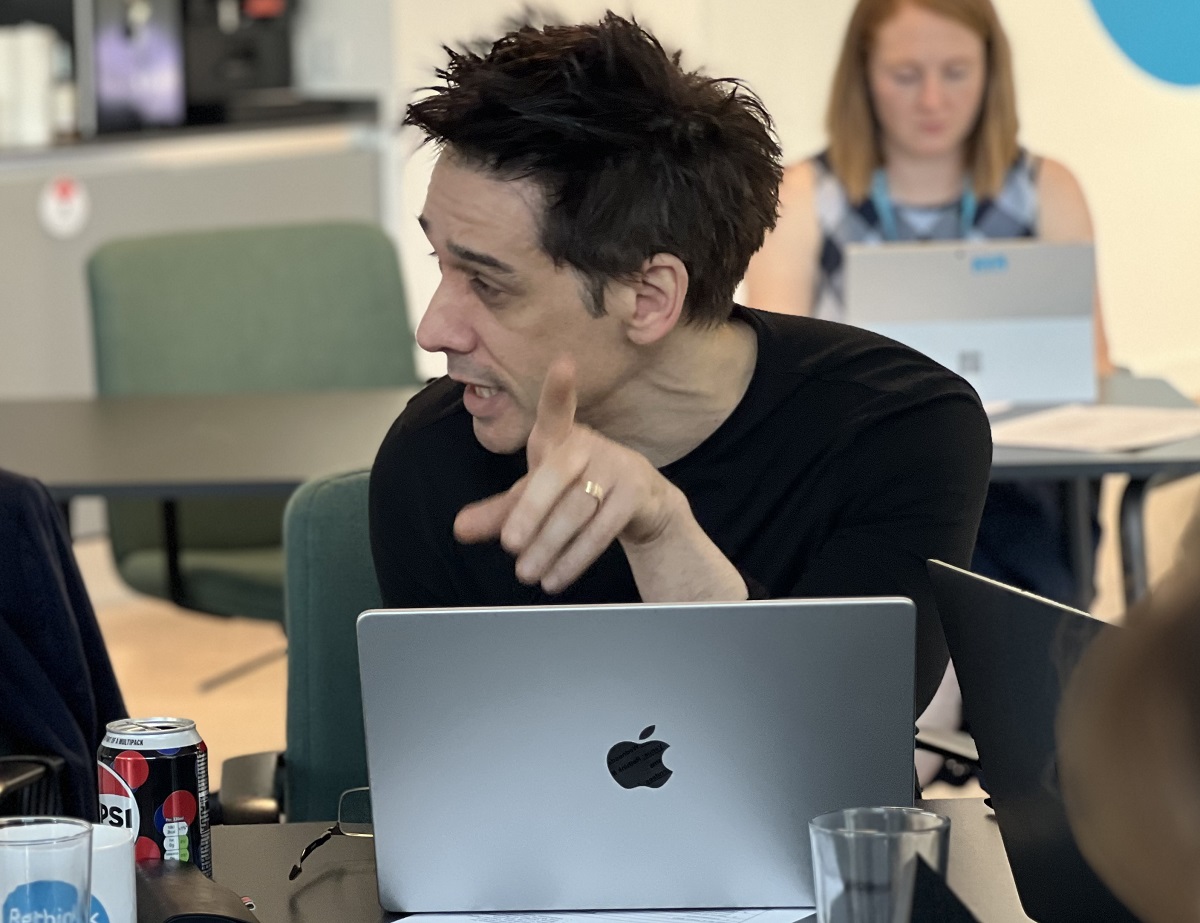
-
Healthcare data is sometimes treated as an asset, perceived as having an intrinsic value to the data controller and where its sharing can be brokered and administered through a uniform governance and data access process. This neglects that the data was produced by patients and there may be an expectation it is used to benefit people like them, with similar difficulties and healthcare needs. Legitimate reuse is not defined by who will broker access to – or sharing of – their data; rather, what is the intended purpose and who will benefit from re-use.
Daniel Joyce, Professor of Connected Mental Health at Mental Health Research for Innovation Centre (M-RIC) Daniel Joyce, Professor of Connected Mental Health at Mental Health Research for Innovation Centre (M-RIC)
Rather than considering health data to be a valuable asset which necessitates its protection by GPs and other gatekeepers, it should be considered a public resource that can be used to improve population wellbeing.
This conversation around data is timely and reflects wider discourse around the potential of NHS to improve care and research, as demonstrated by this recently published briefing paper by the Association of Medical Research Charities.
4. It takes a whole society approach to facilitate research
The culmination of all these key takeaways is that it will take collaboration between multiple stakeholders to progress mental health research.
From sharing data, to employing Experts by Experience to generating funding. We must move past working in silo if we are to accelerate research into mental illnesses.
Over the last ten years, organisations like Wellcome and MQ have helped researchers from different scientific disciplines to work together and share their knowledge and expertise. This has encouraged collaboration and led to many multi-disciplinary studies such as GALENOS with the University of Oxford or the IDEA study at Kings College London.
The value of bringing stakeholders together is also demonstrated by Open Mental Health, a new model of care that was coproduced through a partnership of organisations, including Rethink Mental Illness, and Experts by Experience. The model breaks down barriers between agencies, helping people to access mental health support when they need it, regardless of where they are in the community.
These key takeaways, and more, are reflective of a recent report from the National Institute for Health and Care Research (NIHR) and the Office for Life Sciences (OLS). Their report also highlighted the same themes discussed in the meeting, such as lack of resources, lack of collaboration and inequalities. It also highlighted some other issues such as slow contracting and governance processes, but also some positives that help to enable research such as training opportunities for healthcare workers to facilitate their involvement in clinical research.
It is clear we must continue to break down the silos across sectors – encourage appropriate data and knowledge sharing and grow trust in order to break down stigmas.

-
We are really excited to see Rethink Mental Illness enter into this space to help us champion the importance of mental health research and highlight the key barriers that we still face. Engaging people with lived experience and enabling cross sector collaboration is at the heart of this work and we will ensure that these insights gained through this initial gathering lead to tangible results, including greater investment from private and public funders that deliver interventions and preventative action for those who need it the most.
Emily Wheeler, Director of Development and Research partnerships, MQ Mental Health Research Emily Wheeler, Director of Development and Research partnerships, MQ Mental Health Research
Johnson & Johnson Innovative Medicine provided grant funding to support Rethink Mental Illness's clinical research policy development work and are invited to contribute to the roundtable meeting. Johnson & Johnson Innovative Medicine have not influenced the agenda and otherwise have no input into the project.
This blog was first published on mqmentalhealth.org.
